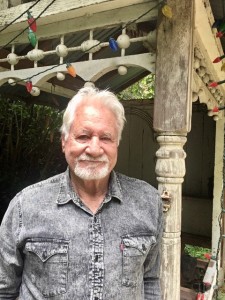Welcome to the key Mindfulness & Emotional Intelligence practices and strategies for today’s teams and leaders.
 Programs based on the latest neuroscience, positive psychology, and mindfulness practice. Peter is a certified coach, team trainer, and mindfulness meditation teacher. Instructor for Dominican Hospital’s public education program, former suicide crisis line responder.
Programs based on the latest neuroscience, positive psychology, and mindfulness practice. Peter is a certified coach, team trainer, and mindfulness meditation teacher. Instructor for Dominican Hospital’s public education program, former suicide crisis line responder.
“We hoped for increased motivation and Peter delivered. We’re also experiencing happier individuals with heightened self-awareness and team contribution. Our work environment seems more thoughtful, with calmer perspectives and productive cooperation.” K. Stellar, B. Parker – CCR
All programs are designed to be fully adaptable to your particular culture and strategic goals, and are delivered on-line or on-site to organizations & businesses. We work with you to develop the right program elements to meet your specific needs and objectives.
Sample Workshop Topics –
SELF AWARENESS EFFECTIVE LEADERSHIP
STRESS REDUCTION OPTIMAL WELL BEING
EMOTIONAL REGULATION MOTIVATION
MINDFUL COMMUNICATION EQUANIMITY
ZONE PERFORMANCE RESILIENCE
CONNECTION WITH SELF & OTHERS EMPATHY
ALL PROGRAMS ARE ADAPTABLE TO YOUR TEAM CULTURE & GOALS
Programs from 1-hour to 2-days are fully adaptable to align with your team’s culture, strategy & goals.
1. Mindfulness & Emotional Intelligence
THE NEUROSCIENCE BEHIND IT – PRACTICES & BENEFITS
WHAT IS MINDFULNESS?
 Mindfulness means to be aware of the ever-changing content of your awareness, without being caught up or identified with it, and not judging, resisting, or automatically acting on it.
Mindfulness means to be aware of the ever-changing content of your awareness, without being caught up or identified with it, and not judging, resisting, or automatically acting on it.
It also means having good control over your attention: you can place your attention where you want and it stays there; when you want to shift it, you can.
The practices offered in these programs have been scientifically demonstrated to have positive effects in shaping our brains and minds to become more focused & resilient, and giving access to inner resources of greater self awareness, equanimity, empathy, compassion, and motivation. All mindfulness practices are grounded in ethical guidelines which are integral with their effectiveness.
WHAT IS EMOTIONAL INTELLIGENCE (EQ)?
Emotional Intelligence is the awareness and understanding of feelings and emotions, your own and those of others, and their impacts. It includes the ability to regulate your emotions, & respond appropriately to the emotions of others.
HOW ARE MINDFULNESS & EQ RELATED?
The core of mindfulness is a non-judgmental awareness of self and others, and self-awareness is the foundational skill of emotional intelligence.
Mindfulness and emotional intelligence are trainable skills that have many positive impacts on our relationship with self and others. Both individuals and team interactions benefit from these practices.
SAMPLE PRACTICES
Attention Training
Mood Check
Who Said That?
Whole Body Awareness Practice
Quieting the Voices Micro-practice
Balancing Breath
5-Second Smile Micro-practice
2. Mindful Communication
Benefits & Practice Exercises for Skillful Speaking and Deep Listening
Honest and thoughtful communication is the essence of every effective relationship, business or personal. However, expressing your truth or being heard does not always come easily. These practices, based on skillful speech and deep listening, can transform every level of relationship.
SAMPLE PRACTICES
Active Listening
Listening From the Heart
Presence Micro-practice
Compassion Training
Assertiveness Training
3. Self Awareness
BENEFITS, PRINCIPLES & PRACTICES

The first challenge of self-awareness is that we are often on auto-pilot – merged, or identified, with our sense of self – lacking the necessary objectivity to be aware, in the moment, of what it is that we are thinking, feeling, or even doing.
A familiar example is black-out driving: you drive many miles to visit someone, and on arriving hardly remember anything about the trip. We might have paid minimal attention to avoid accidents, but what of self-awareness, or awareness of our surroundings?
This can happen during important conversations – we realize with a jolt we can’t recall what our conversational partner was just disclosing to us.
Or we‘re drinking coffee or tea or eating food without mindful attention – and we miss the essence and enjoyment of where we are and what we’re doing. Seeing the bottom of my empty cup as I try to take a sip, I think – “Oh, where’d my coffee go?”
If we make remarks that are ineffective and off-putting to others without realizing it, this lack of self-awareness can have a negative impact. We can raise social/emotional intelligence with practical exercises that improve our people skills, management style, and overall effectiveness.
The ‘neuroplastic’ nature of the brain means that we’re always training and shaping our minds, consciously or not – according to what we pay attention to. Mindfulness practices can put us back in the driver’s seat, more fully engaged in what we’re doing, available to ourselves and others.
SAMPLE PRACTICES
Mindfulness Meditation
‘Empty Out’ Journaling
Body Scan
Tune-in Micro-practice
Mindful Eating
Full Embodiment of Being
‘No Preference’ Equanimity Practice
4. Emotional Regulation
NEUROSCIENCE OF STRESS DYNAMICS, PRACTICES & BENEFITS
 When things start to feel out of control, we need to have tools to calm down and get back on track. With these practices, we can head things off sooner, make course corrections that save time, reconnect to keep the team working together, spur motivation, and streamline productivity. This also contributes directly to health & well being – physically, mentally, emotionally.
When things start to feel out of control, we need to have tools to calm down and get back on track. With these practices, we can head things off sooner, make course corrections that save time, reconnect to keep the team working together, spur motivation, and streamline productivity. This also contributes directly to health & well being – physically, mentally, emotionally.
SAMPLE PRACTICES
Self-Rescue Reset
Compassionate Self-talk
SBNRR
In – Out, Deep – Slow
Universal Friendliness
Acceptance Micro-practice
Creating Personal Sanctuary
Return To Calm Micro-practice
5. Motivation
NEUROSCIENCE AND PRACTICES OF SELF-LEADERSHIP & MOTIVATION

Our brains are hard-wired for motivation – we can learn practices to strengthen and support these essential functions. Setting goals engages the brain’s executive – the pre-frontal cortex, or PFC – for top/down activation of strong intention. We then draw on the brain’s motivator – the ACC, or anterior cingulate cortex – it helps organize activity for followup and manifestation. Setting intention engages your brain to deliver results, and additional techniques can add even greater effectiveness.
You’ll learn values-based strategies for self-leadership and motivation instead of relying on short-phase ‘will power’. By understanding and working with the factors that determine motivation, and connecting with our values, we forge a powerful way forward. We also learn how, in the midst of peak work demand, to maintain well-being and engage key activities for re-vitalization & motivation.
SAMPLE PRACTICES
Still Power Not Will Power
Core Values Alignment
The Full-Stop Break
3-Energies Movement Practice
Igniting Intention Micro-practice
Balancing Thinking, Feeling, Skills, and Energy
6. Empathy
NEUROSCIENCE, PRACTICES & BENEFITS
 Empathy is the foundation of any meaningful relationship, and it’s the basis for both effective leadership and communication. It’s also a trainable skill – we have a natural capacity for empathy which can be developed with conscious intention. You’ll learn practices that utilize and strengthen the brain’s empathy circuits to facilitate understanding, connection and engagement.
Empathy is the foundation of any meaningful relationship, and it’s the basis for both effective leadership and communication. It’s also a trainable skill – we have a natural capacity for empathy which can be developed with conscious intention. You’ll learn practices that utilize and strengthen the brain’s empathy circuits to facilitate understanding, connection and engagement.
SAMPLE PRACTICES
Empathy = Connection, not Agreement or Approval
Tracking Feelings & Sensing Thoughts
Deep Down Roots Micro-practice
Opening The Heart, Holding the Line
Just Like Me
Conscious Intention for Empathy
Leading Me, Leading You
Program Pricing:
2 Hour 1/2 Day 1 Day 2 Day
$1250 $2500 $3200 $4800
+ Hotel, Business Class Airfare & Meals
Followup coaching for best results delivered via live conference calls: contact Peter for rates.
Contact Peter Parker:
+1-831-818-4275 CoachPeterParker@gmail.com
 Programs based on the latest neuroscience, positive psychology, and mindfulness practice. Peter is a certified coach, team trainer, and mindfulness meditation teacher. Instructor for Dominican Hospital’s public education program, former suicide crisis line responder.
Programs based on the latest neuroscience, positive psychology, and mindfulness practice. Peter is a certified coach, team trainer, and mindfulness meditation teacher. Instructor for Dominican Hospital’s public education program, former suicide crisis line responder.
Contact me to discuss how I can best serve you.

